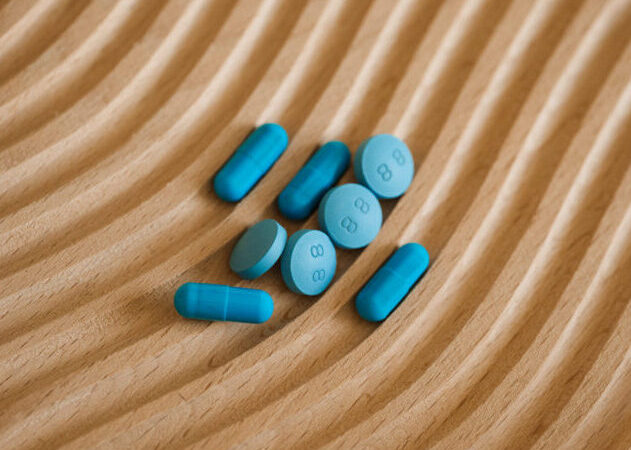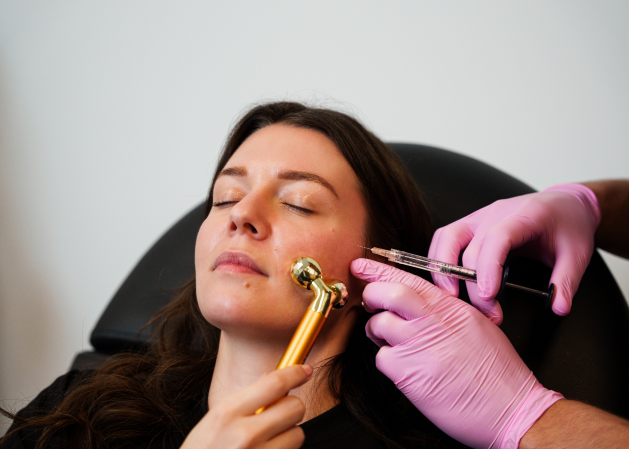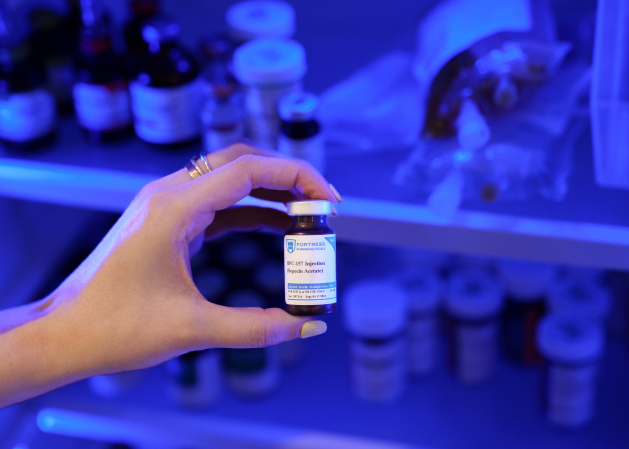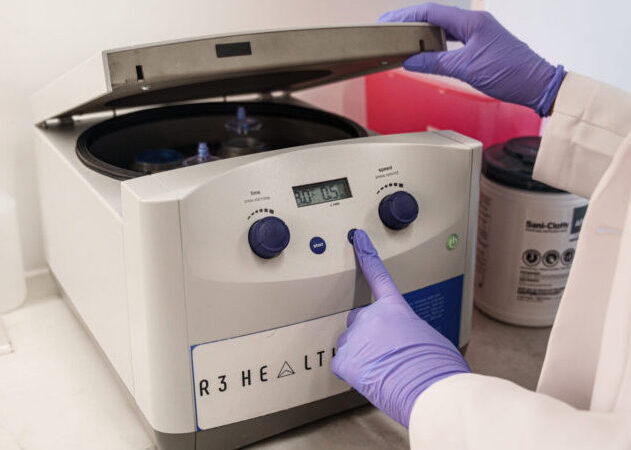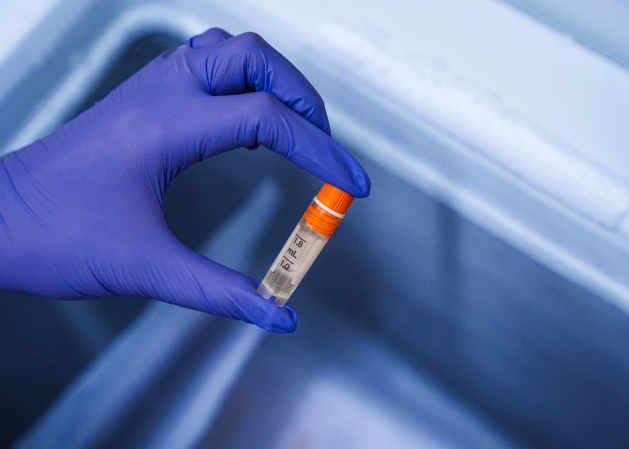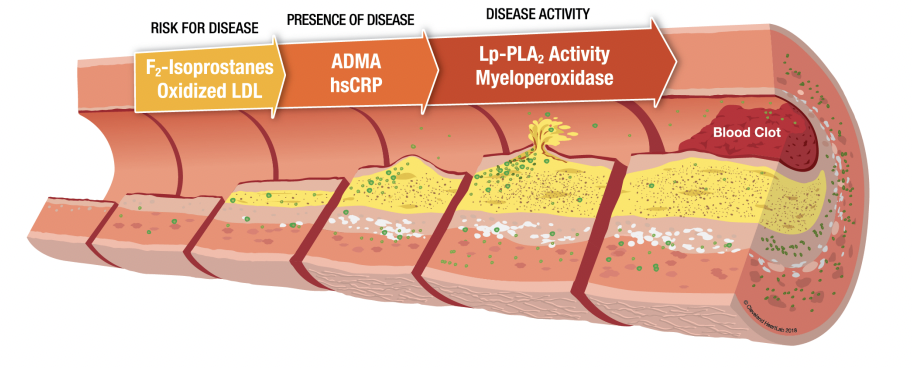There’s been a lot of buzz recently about N-Acetyl Cysteine, more commonly known as NAC. The FDA is talking about it, Amazon is banning it, and people online are getting into hot debates about it, too. So what’s the deal? We’re going to dive into the facts on what NAC is and how it affects your body—but first, let’s take a look at Amazon’s decision to remove all supplements containing this semi-essential amino acid.
Last year, the Food & Drug Administration officially stated its position in a series of warning letters that dietary supplements containing NAC couldn’t legally be sold due to the fact that it was approved as a drug in 1963. In other words, if a supplement contains an ingredient that the FDA classifies as a drug, it cannot lawfully be considered a supplement anymore.
In response to this news, industry insiders at Amazon began reporting that the global eCommerce giant was beginning the process of pulling products containing NAC. This was a bit shocking to the supplement world as products containing this particular ingredient have been used widely for years.
Technically speaking, the FDA didn’t say NAC is harmful—just that it can’t be considered a supplement when they’ve been calling it a drug for the last nearly six decades. So, Amazon’s race to remove this ingredient shouldn’t be taken as a sign that we’ve uncovered the next big toxin that’s currently lurking in the health and wellness industry.
In fact, NAC is actually a supplemental form of Cysteine, which is a semi-essential amino acid the body produces using other essential amino acids. What gives it that semi-essential status? If the amino acids the body uses to produce Cysteine—namely methionine and serine—are lacking, then it needs to be introduced through diet and supplements. Cysteine is found in most high-protein foods including chicken, turkey, yogurt, cheese, eggs, seeds and legumes but people who can’t seem to get enough of this semi-essential amino acid have shown great benefit from the addition of NAC to their lifestyle. Let’s take a look at some of the possible positive effects now!
- Boosted Immune Functions. Studies show that supplementation with NAC can help support the immune system—especially in patients with HIV and other similar conditions and viruses. In fact, one specific test-tube study suggests that NAC may hamper the flu’s ability to replicate!
- Antioxidant Production. Glutathione is one of the body’s most important antioxidants, helping to neutralize free radicals responsible for much damaging to cells and tissues in your body—and it can’t be made without NAC! That means this ingredient is vital for immune health and can even fight cellular damage.
- Improved Fertility. Did you know that 15% of all couples trying to conceive have problems with infertility? One common cause of this issue is free radical damage to the reproductive system—and since NAC can boost antioxidant production, it’s shown to improve fertility problems in both men and women.
- Detoxification Assistance. When patients present to the ER with symptoms of an acetaminophen overdose or other recreational drug usages, one common treatment is the introduction of NAC via an IV. This tactic is due primarily to NAC’s anti-inflammatory properties that protect the liver and kidneys from cell damage during the detoxification process.
- Better Respiratory Functions. NAC acts as an expectorant to loosen mucus in your airways while reducing inflammation of bronchial tubes and lung tissues. Daily doses have even shown to produce improved symptoms related to bronchitis and COPD.
- Stabilized Blood Sugar Levels. High blood pressure and obesity can be risk factors for type 2 diabetes—but NAC can help prevent that by decreasing inflammation in fat cells. This process improves insulin resistance and helps to stabilize blood sugar levels for optimal health benefits.
- Decreased Risk For Heart + Brain Problems. Want to keep your ticker ticking and your mind sharp as a tack? Animal studies show that NAC can improve cognitive abilities in patients suffering from Alzheimer’s, Parkinson’s, bipolar disorder, OCD, schizophrenia, and addictive behaviors. Plus, a strong boost of antioxidants helps combat oxidative stress that can cause cardiovascular damage that leads to heart disease.
Despite its classification as a drug, NAC is a widely-used, natural supplement that boasts many benefits to the human body. While the FDA may have published papers regarding the substance’s legality and caused a huge uproar in the wellness industry, Amazon’s decision to pull products containing NAC off their shelves has nothing to dowith its hazardousness and more of a signal that large corporations need to follow strict guidelines when it comes to selling health aids and other similar products. Bottom line? Everybody is different—and many people have reported positive benefits from the supplemental use of NAC. Still have questions? The experts at R3 Health always have answers! Reach out today for the low-down to learn more about NAC.
There’s been a lot of buzz recently about N-Acetyl Cysteine, more commonly known as NAC. The FDA is talking about it, Amazon is banning it, and people online are getting into hot debates about it, too. So what’s the deal? We’re going to dive into the facts on what NAC is and how it affects your body—but first, let’s take a look at Amazon’s decision to remove all supplements containing this semi-essential amino acid.
Last year, the Food & Drug Administration officially stated its position in a series of warning letters that dietary supplements containing NAC couldn’t legally be sold due to the fact that it was approved as a drug in 1963. In other words, if a supplement contains an ingredient that the FDA classifies as a drug, it cannot lawfully be considered a supplement anymore.
In response to this news, industry insiders at Amazon began reporting that the global eCommerce giant was beginning the process of pulling products containing NAC. This was a bit shocking to the supplement world as products containing this particular ingredient have been used widely for years.
Technically speaking, the FDA didn’t say NAC is harmful—just that it can’t be considered a supplement when they’ve been calling it a drug for the last nearly six decades. So, Amazon’s race to remove this ingredient shouldn’t be taken as a sign that we’ve uncovered the next big toxin that’s currently lurking in the health and wellness industry.
In fact, NAC is actually a supplemental form of Cysteine, which is a semi-essential amino acid the body produces using other essential amino acids. What gives it that semi-essential status? If the amino acids the body uses to produce Cysteine—namely methionine and serine—are lacking, then it needs to be introduced through diet and supplements. Cysteine is found in most high-protein foods including chicken, turkey, yogurt, cheese, eggs, seeds and legumes but people who can’t seem to get enough of this semi-essential amino acid have shown great benefit from the addition of NAC to their lifestyle. Let’s take a look at some of the possible positive effects now!
- Boosted Immune Functions. Studies show that supplementation with NAC can help support the immune system—especially in patients with HIV and other similar conditions and viruses. In fact, one specific test-tube study suggests that NAC may hamper the flu’s ability to replicate!
- Antioxidant Production. Glutathione is one of the body’s most important antioxidants, helping to neutralize free radicals responsible for much damaging to cells and tissues in your body—and it can’t be made without NAC! That means this ingredient is vital for immune health and can even fight cellular damage.
- Improved Fertility. Did you know that 15% of all couples trying to conceive have problems with infertility? One common cause of this issue is free radical damage to the reproductive system—and since NAC can boost antioxidant production, it’s shown to improve fertility problems in both men and women.
- Detoxification Assistance. When patients present to the ER with symptoms of an acetaminophen overdose or other recreational drug usages, one common treatment is the introduction of NAC via an IV. This tactic is due primarily to NAC’s anti-inflammatory properties that protect the liver and kidneys from cell damage during the detoxification process.
- Better Respiratory Functions. NAC acts as an expectorant to loosen mucus in your airways while reducing inflammation of bronchial tubes and lung tissues. Daily doses have even shown to produce improved symptoms related to bronchitis and COPD.
- Stabilized Blood Sugar Levels. High blood pressure and obesity can be risk factors for type 2 diabetes—but NAC can help prevent that by decreasing inflammation in fat cells. This process improves insulin resistance and helps to stabilize blood sugar levels for optimal health benefits.
- Decreased Risk For Heart + Brain Problems. Want to keep your ticker ticking and your mind sharp as a tack? Animal studies show that NAC can improve cognitive abilities in patients suffering from Alzheimer’s, Parkinson’s, bipolar disorder, OCD, schizophrenia, and addictive behaviors. Plus, a strong boost of antioxidants helps combat oxidative stress that can cause cardiovascular damage that leads to heart disease.
Despite its classification as a drug, NAC is a widely-used, natural supplement that boasts many benefits to the human body. While the FDA may have published papers regarding the substance’s legality and caused a huge uproar in the wellness industry, Amazon’s decision to pull products containing NAC off their shelves has nothing to dowith its hazardousness and more of a signal that large corporations need to follow strict guidelines when it comes to selling health aids and other similar products. Bottom line? Everybody is different—and many people have reported positive benefits from the supplemental use of NAC. Still have questions? The experts at R3 Health always have answers! Reach out today for the low-down to learn more about NAC.






